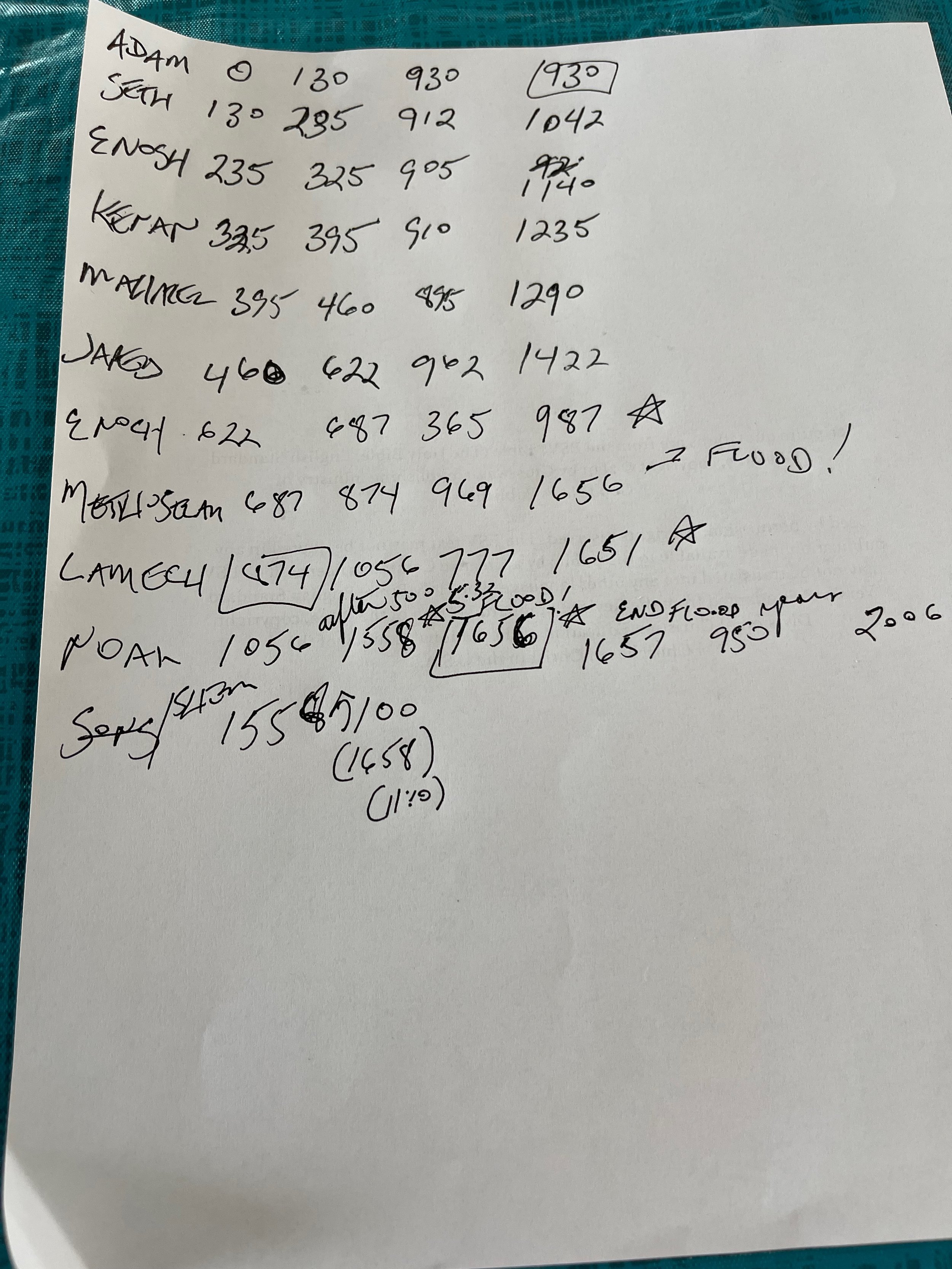The Table of Nations
Genesis 10:1-32
The Table of Nations
10These are the generations of the sons of Noah, Shem, Ham, and Japheth. Sons were born to them after the flood.
The Japhethites
2 The sons of Japheth: Gomer, Magog, Madai, Javan, Tubal, Meshech, and Tiras. 3 The sons of Gomer: Ashkenaz, Riphath, and Togarmah.
4 The sons of Javan: Elishah, Tarshish, Kittim, and Dodanim. 5 From these the coastland peoples spread in their lands, each with his own language, by their clans, in their nations.The Hamites
6 The sons of Ham: Cush, Egypt, Put, and Canaan. 7 The sons of Cush: Seba, Havilah, Sabtah, Raamah, and Sabteca. The sons of Raamah: Sheba and Dedan. 8 Cush fathered Nimrod; he was the first on earth to be a mighty man. 9 He was a mighty hunter before the Lord. Therefore it is said, “Like Nimrod a mighty hunter before the Lord.” 10 The begin- ning of his kingdom was Babel, Erech, Accad, and Calneh, in the land of Shinar. 11 From that land he went into Assyria and built Nineveh, Rehoboth-Ir, Calah, and 12 Resen between Nineveh and Calah; that
is the great city. 13 Egypt fathered Ludim, Anamim, Lehabim, Naph- tuhim, 14 Pathrusim, Casluhim (from whom the Philistines came), and Caphtorim.
15 Canaan fathered Sidon his firstborn and Heth, 16 and the Jebusites, the Amorites, the Girgashites, 17 the Hivites, the Arkites, the Sinites, 18 the Arvadites, the Zemarites, and the Hamathites. Afterward the clans of the Canaanites dispersed. 19 And the territory of the Canaanites ex-
tended from Sidon in the direction of Gerar as far as Gaza, and in the direction of Sodom, Gomorrah, Admah, and Zeboiim, as far as Lasha. 20 These are the sons of Ham, by their clans, their languages, their lands, and their nations.
21 To Shem also, the father of all the children of Eber, the elder brother of Japheth, children were born. 22 The sons of Shem: Elam, Asshur, Arpachshad, Lud, and Aram. 23 The sons of Aram: Uz, Hul, Gether, and Mash. 24 Arpachshad fathered Shelah; and Shelah fathered Eber. 25 To Eber were born two sons: the name of the one was Peleg, for in his days the earth was divided, and his brother’s name was Joktan. 26 Joktan fathered Almodad, Sheleph, Hazarmaveth, Jerah, 27 Hadoram, Uzal, Diklah, 28 Obal, Abimael, Sheba, 29 Ophir, Havilah, and Jobab; all these were the sons of Joktan. 30 The territory in which they lived extended from Mesha in the direction of Sephar to the hill country of the east. 31 These are the sons of Shem, by their clans, their languages, their lands, and their nations.
32 These are the clans of the sons of Noah, according to their genealogies, in their nations, and from these the nations spread abroad on the earth after the flood.
Three quick points about the genealogy in Genesis 10, the descendants of Noah:
The Bible wants us to understand that the spread of peoples over the earth is just as much part of God’s plan as the creation of the animals in Genesis 1. People are of course freely choosing to move and spread out, but this is nonetheless a fulfillment of God’s command that humanity be fruitful and multiply.
All of humanity is part of the same family, even though the different nations seem so different. Through the Old Testa- ment, Israel will constantly come up against these nations, and the question will be “Will they treat each other as family members, or as enemies?”
Israel is a small nation among many, and yet it’s the one God uses to save the world.




















